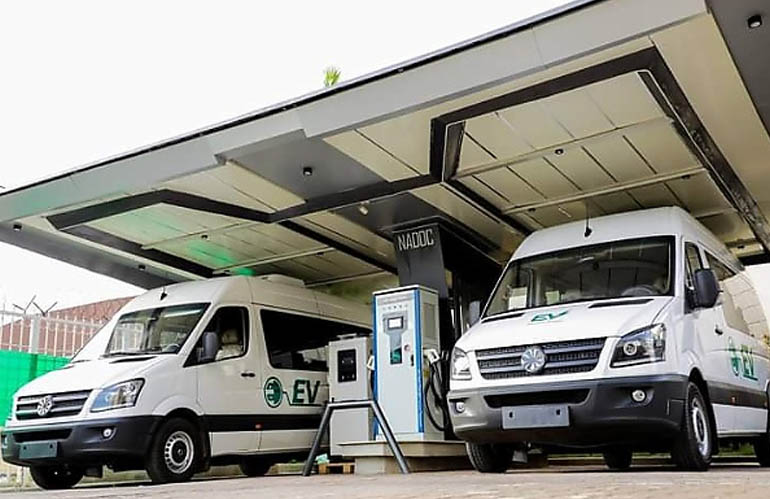In Nigeria, a country with a growing population and increasing urbanisation, the adoption of electric vehicles (EVs) holds significant potential. However, several challenges must be addressed to facilitate their widespread adoption and ensure a sustainable transition to cleaner transportation.
Electric vehicles are a viable alternative to petrol-powered or CNG-powered vehicles for private use in Nigeria. Although there is a lack of public electric vehicle charging stations. In developed countries, many electric car owners hardly utilize public charging stations as often as their home charging stations which have become their primary charging source. If you ask some people in Nigeria whether they are thinking of owning an electric car, the common concern they have is typically around the distance it can travel on a full charge.
The most asked questions on this topic are, how affordable are electric cars over the long run?
Buy top trending Car accessories in Lagos and Original Korea Battery now Check @carfanzy Lagos on Instagram
They might cost more to purchase in the first place than petrol-powered cars, but electric cars should reduce your running (fueling) costs after that.
You must consider purchasing and running costs before deciding if an EV is right for you.
Let us understand the cost comparison better by comparing the cost of owning an electric-powered car against a petrol-powered car. A Tesla model Y Long Range version, which on full charge can cover a range of about 500km, comes with an 80kWh battery capacity. The 2023 Model Y sells for about $47,000. With shipping and import duties, let us assume it costs $60,000 or about N60m in today’s economy.
A 2023 Mercedes Benz E Class Sedan can cover the same range as the Tesla and comes with a 66-litre fuel tank. It costs about N60m. Now Let us assume both cars cost the same. The difference now lies in the running costs.
According to Businessday, Charging an electric vehicle costs ₦150 per kWh. Hence, using this cost to charge our 80kWh Tesla, we would have to spend N12,000. For the Mercedes, at a petrol price of N650 per litre, we would have to spend about N43,000 to fill our 66-litre tank. This is almost four times the cost of running an electric car. The running cost savings can even be more if you charge your electric car from a solar-powered home charging point.
Electric vehicles have other benefits: they are less environmentally harmful and do not cause carbon emissions. As an EV owner, you will also benefit from reduced maintenance bills as EVs have fewer moving parts than petrol-powered vehicles.
Import duty concessions would be necessary to grow the EV market in Nigeria.
Government incentives can also be used to encourage the purchase of electric vehicles with a preference for locally assembled ones. Priority driving lanes and parking spaces can be accorded to CNG-powered cars and electric vehicles. Nigerians deserve alternatives to petrol-powered cars as running them is becoming increasingly expensive.
Conclusion:
The future of electric cars in Nigeria holds promise for reducing emissions, promoting energy security, and driving technological innovation. However, overcoming challenges such as limited charging infrastructure, high initial costs, and electricity access issues will require concerted efforts from the government, industry stakeholders, and the public. With the right policies and investments, Nigeria can transition towards a more sustainable and environmentally friendly transportation system powered by electric vehicles.
Have 1 million naira and above to Buy or Sell Cars In Nigeria? Check Carmart.ng RIght Now
All rights reserved. Reproduction, publication, broadcasting, rewriting, or redistribution of this material and other digital content on carmart.ng is strictly prohibited without prior express written permission from Carmart Nigeria - Contact: [email protected]
Stay informed and ahead of the New Car info! Follow The Carmart Blog on WhatsApp for real-time updates, Cheap Cars, and Latest new car content. Don't miss Any –
Join The Carmart Blog Channel







